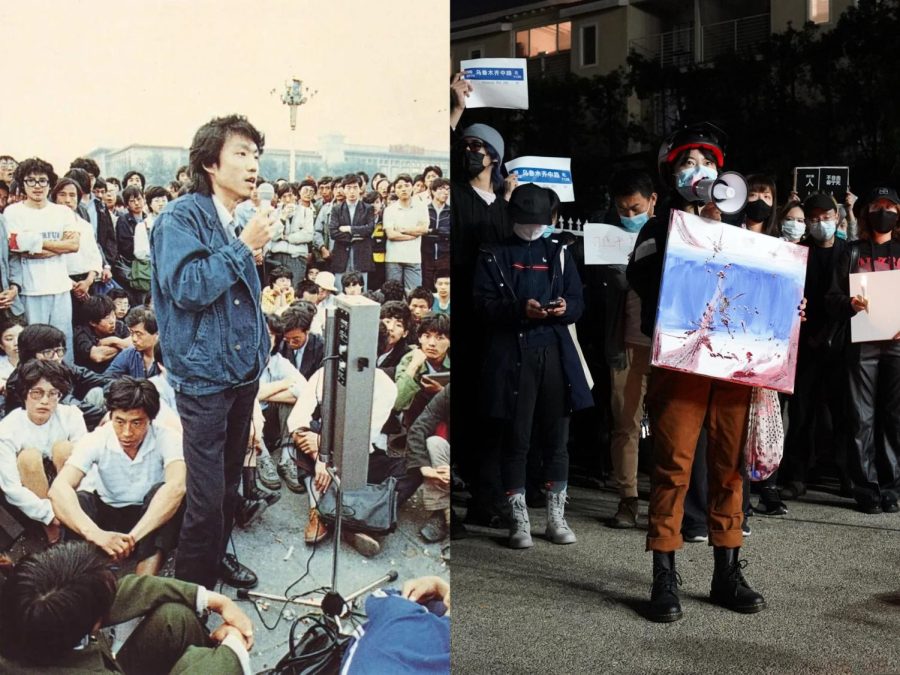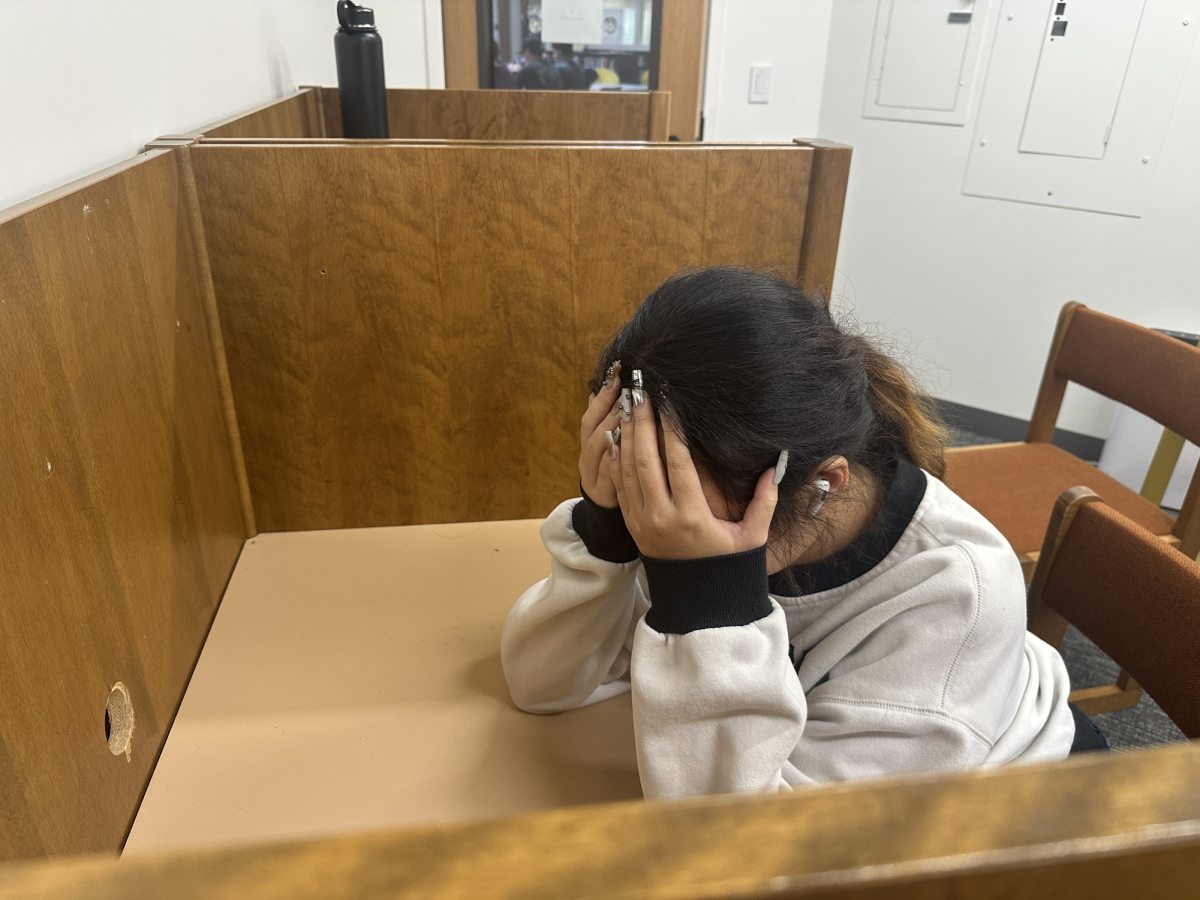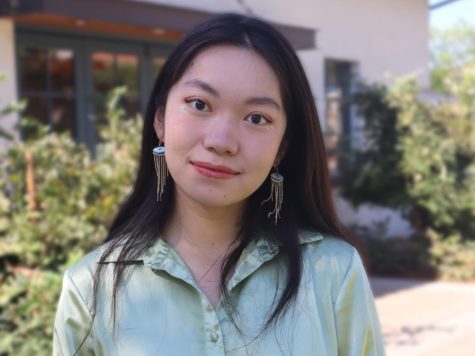The tensions and complexities of Chinese people’s resistance are never adequately captured in Western media, which broadly frames any opposition to the Chinese Communist Party as “pro-democracy.” As a self-reflective and staunch leftist from Beijing and having written an article on the protests quoting from mainstream liberal media, I feel the need to address what “democracy” means amid the New Cold War between the U.S. and China, and answer — from a leftist perspective — what the Chinese people really want.
One of the greatest legacies of Western liberalism is equating the word “democracy” with liberal democracy, a constitutional federal republic system that enforces free speech, free elections, and property rights. This is an inherently idealist vision of democracy — meaning it emphasizes the “spirit” and appearance of governance rather than the material conditions they create. While on the surface, the U.S. government extols freedom and rights, these lofty ideals create enormous space for capital to rule. This is why, to name a few obvious examples, this supposedly “free” country has the largest and most disproportionally black and brown incarcerated population, and while citizens can vote between a horrible and a horrendous candidate for presidency, they never get to vote on the defense budget — imperialism is out of the question.
Under this idealist democracy that merges with free-market capitalism and remnants of cold-war anticommunism, anything remotely similar to a central government or wealth redistribution gets labeled “anti-democratic” and “authoritarian.” This narrative prevalent in Western media conveniently leaves wealth inequity out of the picture of global civil struggles and overemphasizes issues of free expression and the ballot, which is immensely misleading, especially in reporting protests in China.
Take the 1989 Tiananmen Square Protests, for example. Western media such as the New York Times and CNN framed the protests against the CCP as a “pro-democracy” struggle, implying that people were fighting against socialism and totalitarianism. While freedom of expression and constitutional processes were core demands of students and intellectuals, it was not socialism that the Chinese people hated. To truly understand 1989 requires a look at the erased heroes of the movement: Chinese workers.
In the 1980s, the Chinese government accepted foreign capital and private companies into the economy in hopes of stimulating economic growth, but the pro-market move brought about corruption, cuts to social security programs, and inflation that caused the workers to suffer. While from an idealist perspective, 1989 was a fight between “democracy” and “dictatorship,” from a materialist perspective — which reclaims workers’ importance in the movement — 1989 was rather the struggle for a more liberal form of socialism instead of the shrinking of socialism. Contrary to the anticommunist agenda of mainstream media in America, it was the widening wealth gap following market liberalization and diminishing socialist institutions — all amid the tightening of social freedoms — that gave birth to the protests.
Fast-forward three decades, similar things can be said about the White Paper Protests. Again, free speech is indeed one of the core demands, but capitalism was not the proposed solution. At the protests, people clearly expressed their anger at how the pandemic accelerated the accumulation of capital by Chinese state capitalists while ordinary people suffered from economic stagnation and the mass trauma of forced lockdown.
These sentiments I witnessed at the protests were only a fragment of the larger dilemma of the Chinese left in continuation of the workers’ spirit at Tiananmen Square. While Chinese people live in the reality of extreme wealth inequality and the ever-growing hustle culture, they are deprived of the freedom of speech to express their frustration toward the government.
The Chinese left, at the risk of being labeled a “hostile foreign force (境外势力)” by the CCP or a “commie” plotting to corrode the “American way of life” by liberal and conservative Americans, ultimately advocates for the realization of the so-called Chinese “Communist” Party’s promise: serving the people (为人民服务), rather than enriching government bureaucrats and state capitalists profiting from the pandemic.
This is why, at both Tiananmen Square in 1989 and the White Paper Protests in 2022, protestors sang the Internationale, a left-wing anthem, in Mandarin Chinese:
起来饥寒交迫的奴隶 Arise you prisoners of starvation
起来全世界受苦的人 Arise you wretched of the Earth
满腔的热血已经沸腾 For justice thunders condemnation
要为真理而斗争!A better world’s in birth!
Ultimately, the struggle for words is a political struggle. As we come of age in the New Cold War between the U.S. and China, it is time for us to all rethink what “democracy,” “dictatorship,” and a just society for and by the people really mean.







![Many Webb students spend their free time in the library watching a popular TV show like Riverdale and Euphoria. “Based off what I’ve seen, like in Euphoria, because the actors are older, they don't showcase an actual high school life properly,” Sochika Ndibe (‘26) said. “Since [the actors] are older [and] playing a teenager, from a girl’s perspective, it is going to make you think you should look more developed at a young age.” The actor, who plays Veronica Lodge, was 22 years old at the time of filming.](https://webbcanyonchronicle.com/wp-content/uploads/2025/03/Antecol-Media-affects-how-society-functions-graphic-1200x900.png)







